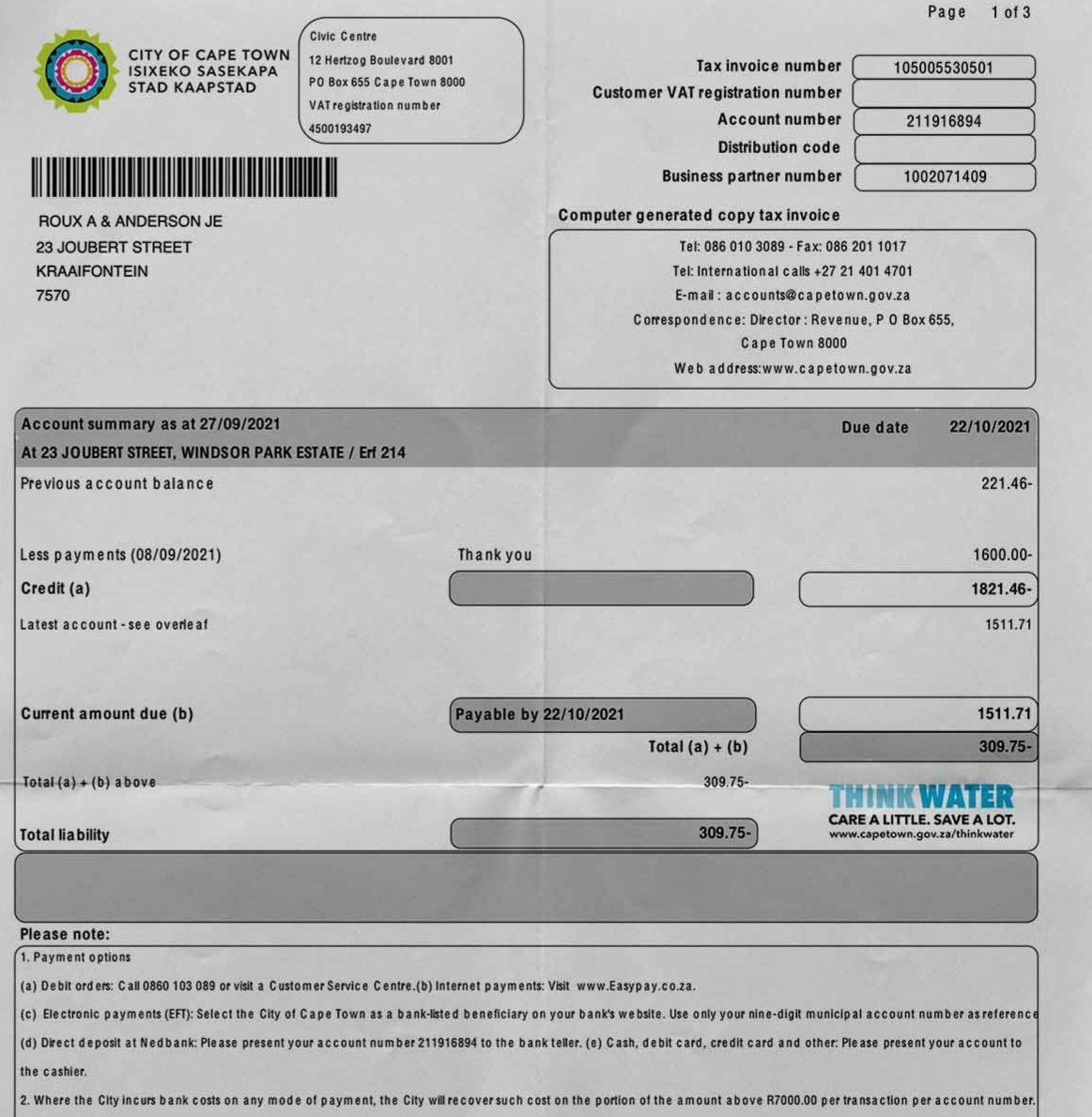Lake Properties Lake Properties
Lake Properties Lake PropertiesHere's a more detailed explanation of why you must ensure municipal bills are up to date when buying a house in South Africa:
1. Transfer of Ownership Requires a Municipal Clearance Certificate
Before a property can be transferred from the seller to the buyer, the local municipality must issue a rates clearance certificate. This certificate proves that:
- All municipal accounts (rates, water, electricity, sanitation, refuse removal, etc.) have been paid for the past two years, and
- The seller has prepaid a few months ahead (usually 3 to 6 months) to cover the clearance period.
Without this certificate, the Deeds Office will not register the transfer, and the sale cannot legally be completed.
2. Buyers May Inherit Debt (Two-Year Rule)
While municipal debts are generally the seller’s responsibility, Section 118(3) of the Municipal Systems Act allows municipalities to claim any unpaid municipal debts from the property itself, not just the person who incurred the debt.
-
This means if the seller had unpaid municipal bills in the 2 years before transfer, the municipality can refuse services or attach the property to recover the amount—even after you’ve bought the house.
-
Though courts have limited the scope of this, the risk still exists, and many municipalities are slow to update records.
3. Service Disruptions and Reconnections
If there are arrears on the municipal account:
- The municipality may disconnect services such as water and electricity, even after you take occupation.
- You may have to pay to reconnect or settle disputes, even though the debt isn’t technically yours.
4. Financial Planning and Legal Protection
Making sure the seller's municipal bills are paid ensures that:
- You avoid unexpected costs after the sale.
- You can budget accurately without surprises.
- You don’t need to engage in legal battles over old debts or service disputes.
5. Best Practice During the Sale
To protect yourself:
- Ensure the seller provides a valid and recent municipal clearance certificate.
- Ask your conveyancer (property transfer attorney) to confirm that all accounts are zeroed and prepaid as needed.
- Keep a copy of the clearance certificate for your records, in case of future disputes with the municipality.












No comments:
Post a Comment